The flight of Yemeni leader Ali Abdullah Saleh to Saudi Arabia deprives the United States of a fitful ally in the fight against al-Qaeda’s most dangerous affiliate and injects new uncertainty into counterterrorism operations that were already hampered by the country’s bloody internal strife, according to Yemen and security experts.
While Saudi Arabia, with U.S. backing, will almost certainly prevent Saleh’s return to Yemen, it is unclear who will replace him and whether there will be a change in attitude toward American efforts to target Islamic militants in the country.
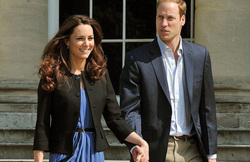 The newlyweds will use Kensington Palace as their London residence.
Prince William and wife Kate will move in to the childhood home where he lived with Princess Diana in the next few days.
Their time will be split the capital and their cottage in Anglesey, where he is based as a search and rescue pilot.
Wills, 28, and Kate, 29, who attended Saturday's Derby at Epsom racecourse, will live in a relatively small apartment at the stunning central London location.
A royal source said: "They are really looking forward to moving in soon and having a base in the capital.
"Kate and William love the peace and quiet of Anglesey but they can't just stay holed up there for the next two years.
"The public want to see them, and it makes sense for them to have a base in the capital.
"They both love London and have lots of friends there and it's a good place for Kate to get stuck into thinking about what charities she wants to promote and other work she might take on."
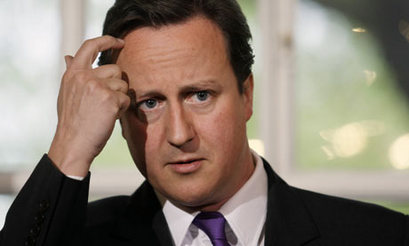 THE Tory guru behind David Cameron’s Big Society idea has hit money troubles.
Phillip Blond, set up the think-tank ResPublica two years ago to promote his “red Tory” brand of community-focused politics.
The Prime Minister hailed the organisation for its “fresh and radical thinking”.
But the limited company, whose sole director and owner is Cambridge-educated Mr Blond, is believed to have cut staff from 16 to six in a round of redundancies.
And workers were locked out of their offices near Downing Street last month because the rent hadn’t been paid. A spokesman for Mr Blond said the staff lock-out lasted “several days” and was the result of a technical bank account glitch while he was abroad rather than a lack of cash.
Accounts lodged at Companies House show the firm has “net current liabilities” of £13,358.
A ResPublica spokesman insisted it made “a healthy profit” of about £4,000 last year. Mr Blond, step-brother of Bond actor Daniel Craig, owes the firm £38,609.
The spokesman added: “I can confirm that ResPublica has recently been through a period of restructuring, prior to the think-tank becoming a not-for-profit company, which has involved some redundancies, and towards the end of the summer we will be recruiting additional staff.”
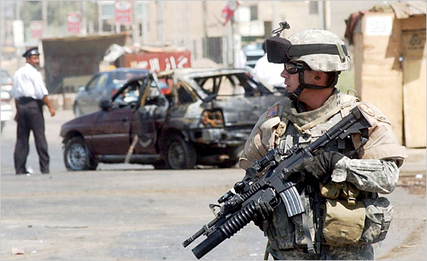 BAGHDAD — Five U.S. soldiers were killed Monday in a rocket attack at a joint U.S.-Iraqi base in the capital, officials said. It was the largest death toll for the American military in Iraq in a single incident in two years. The U.S. military did not release details of the attack, but Iraqi officials and witnesses said it occurred at Camp Loyalty, which Iraqis call Baladiyat base. The base is located in the Baladiyat district of Baghdad, close to Sadr City. Iraqi security officials said about six rockets hit the base, apparently near the Americans’ residential quarters.
Monday’s palace bombing occurred as the Iraqi army, under orders from Prime Minister Nouri al-Maliki’s national government, was attempting to take over responsibility for protecting the palace following Friday’s explosion, Iraqi security officials said.
A man detonated a car packed with explosives at the palace gate about 9:30 a.m. Most, if not all, of the dead were Iraqi police and soldiers. An Iraqi army colonel overseeing the handover operation was among the wounded.
The dead in Friday’s mosque bombing included several high-ranking Sunni officials from Tikrit, Hussein’s home town. About 10 hours after the bombing, a suicide bomber detonated his explosives near the emergency room of a teaching hospital where the wounded were being treated. As many as 17 people were killed in that incident, according to a doctor who survived the blast.
Local officials suspect that al-Qaeda in Iraq might be behind the attacks. The group has been targeting Sunni politicians and tribal leaders suspecting of cooperating with Iraq’s national government or supportive of a continued U.S. military presence in the country.
Tikrit, which forms the tip of an area north and west of Baghdad known as the Sunni Triangle, has been especially hard-hit in recent months by the violence that continues to plague Iraq. Shortly after Monday’s blast, the head of national security for Iraq’s Sala ad-Din province, which includes Tikrit, resigned.
Also on Monday, in Anbar Province in western Iraq, four people were killed after insurgents apparently placed explosives around the home of a lieutenant colonel in the local police force. The police commander was not home when the explosives detonated, but his mother, wife, daughter and brother were killed, according to Iraqi security officials.
In Baghdad, at least two people were killed when gunmen opened fire on two checkpoints manned by Sunnis associated with the anti-al-Qaeda in Iraq “Awakening” movement.
A car bomb also exploded Monday morning on Baghdad’s busy Palestine Street, killing one person and injuring 10 others, security officials said. In another incident, several police officers were injured when a gunman opened fire at a checkpoint in northern Baghdad.
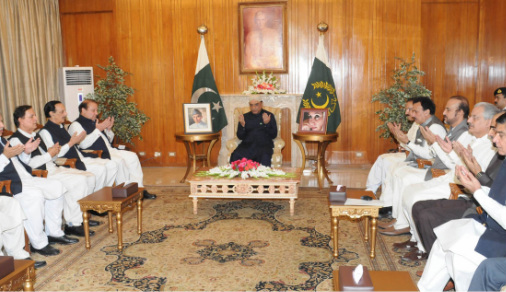 ISLAMABAD: Pakistan Muslim League-Nawaz chief Nawaz Sharif and other party leaders called on President Asif Ali Zardari at the Presidency on Thursday to offer their condolences over the death of his father, Hakim Ali Zardari. The PML-N leaders offered fateha for the departed soul. The president thanked them for their condolences and sympathies. The PML-N delegation included Raja Muhammad Zafarul Haq, Makhdoom Javed Hashmi, Muhammad Ishaq Dar, Khawaja Muhammad Asif, Iqbal Zafar Jhagra, Justice (r) Ghous Ali Shah, Sardar Yaqoob Khan Nasir, Chaudhry Sharif, Shakeel Ahmad and Dr Asif Karmani. Minister for Trade and Commerce Makhdoom Amin Fahim, Interior Minister Rehman Malik, Minister for Petroleum and Natural Resources Dr Asim Hussain, senators Dr Babar Awan, Raza Rabbani, Qamar Zaman Kaira, Raja Parvez Ashraf, Imtiaz Safdar Waraich and presidential spokesman Farhatullah Babar were also present.
LAHORE, June 2: A patient reportedly died on way to hospital as the car carrying him was allegedly stopped for a considerable time by a warden following a traffic signal violation on The Mall. The incident provoked a protest by relatives of the deceased who were joined by Old Anarkali traders.
The protesters, who kept The Mall blocked for sometime, alleged the warden did not allow the car carrying the patient to proceed to hospital without issuing a fine ticket despite being informed his condition was serious. They said because of the warden’s intransigence the patient could not be shifted to hospital in time and he died.
Falak Sher, 42, of Phalia tehsil of Mandi Bahauddin district, was reportedly declared dead when brought to Mayo Hospital.
According to initial police investigation, the three people shifting Falak Sher to Mayo Hospital by a car were stopped by a warden at the City Heritage Museum (old Tollinton Market) traffic signal after they violated the one-way rule.
A police official claimed the patient had muscular pain in his back. However, it was not yet clear if he died on road, he added.
He said the warden had been taken into custody and the brothers of Falak Sher were demanding a strict departmental action against him.
Chief Traffic Officer Captain Syed Ahmad Mobeen (retired) told Dawn warden Asif had been suspended from service and that a legal action would be taken against him at a later stage.
He said it was yet to be established that at what time the patient expired.
INJURED: Two people were injured in a firing incident on Hall Road on Thursday.
Rescue 1122 shifted injured Abu Bakar, 30, and Nafees Raza, 25, to Mayo Hospital.
Civil Lines police claimed the youths were injured when the gun of a shop watchman went off accidentally while he was cleaning it.
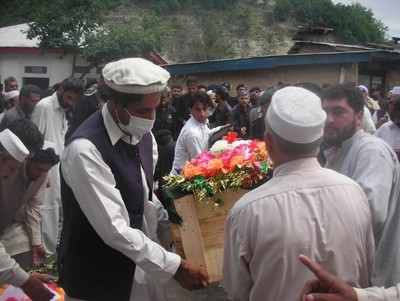 PESHAWAR, Pakistan — At least 72 people have been killed in two days of intense fighting between Pakistani security forces and hundreds of militants who crossed from Afghanistan into northwest Pakistan, officials said.
Local officials and residents in Upper Dir, a remote valley that borders the Afghan province of Konar, said Pakistani troops regained control of the area after 36 hours of fierce clashes with heavily armed militants who attacked a police checkpoint Wednesday. At least 27 Pakistanis, including four civilians, were killed in the fighting, as were 45 insurgents, local police officials said. The dead included two women, a child and a prayer leader in the town of Shaltalo.
The insurgent fighters blew up at least two schools and stole weapons from the Pakistani checkpoint, according to local officials in the area, who said the militants were thought to be Afghans and Pakistanis.
Pakistan’s foreign office said late Thursday that it had complained about the attack to Afghanistan and urged “stern action” by the Afghan army and NATO forces against militants and their hideouts in Afghanistan.
Omar Hassan Ahravi, who identified himself as a spokesman for the Pakistani Taliban in the nearby Malakand region, told some local reporters that his organization had carried out the attack “with Afghan friends.”
Ahravi said the militants managed to seize Pakistani antiaircraft weapons.
The mountainous border between Pakistan and Afghanistan is famously porous, making it easy for Afghan fighters based in Pakistan to cross over for attacks on coalition forces. But fighters based in Afghanistan rarely stage missions on the Pakistan side of the border. Pakistani security officials said Thursday that they thought the Upper Dir attack might have been carried out by Pakistani militants who previously fled across the frontier during military offensives.
Police in Upper Dir, which lies outside Pakistan’s tribal areas in Khyber Pakhtunkhwa province, said the majority of about 300 fighters had retreated back into Afghanistan by Wednesday afternoon.
The confrontation demonstrated the continued strength of Islamist militants along the Afghanistan-Pakistan frontier, in spite of several recent Pakistani military offensives on Pakistani soil and the presence of NATO troops across the border.
On Wednesday, the Pakistani general who commands troops in the restive northwest announced plans for a new offensive in Kurram, a tribal area farther south along the border. Kurram borders North Waziristan, a militant hub that the United States wants Pakistan to attack. But the general and other Pakistani officials said Wednesday that they have no imminent plans to do so.
“There is no change in North Waziristan in past months and weeks,” Lt. Gen. Asif Yasin Malik said. “We will undertake an operation when we want to, when it’s in the national interest.”
Witnesses said the fighters involved in the clashes were wearing fatigues. Some said the uniforms resembled those worn by Pakistani soldiers, and others said they looked like the uniforms of NATO troops.
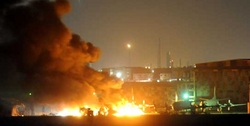 ISLAMABAD: It’s a nightmare scenario: al Qaeda militants gain control of a Pakistani nuclear weapon, either through a base assault, theft or a rogue commander’s cooperation, possibly in the event of hostilities with nuclear-armed neighbour India.
While most experts believe Pakistan’s strategic nuclear arsenal is safe, items such as low-yield, mobile nuclear delivery systems — called “shoot and scoot” tactical nuclear weapons — could be highly vulnerable.
The Nasr (Hatf-9) system being developed is a short-range, surface-to-surface multi-tube ballistic missile system. With a range of 60 km (37.5 miles), it’s designed for battlefield use.
Deploying small, portable nuclear weapons onto a battlefield increases the risk of things going wrong, either through miscalculation, an accident or possible infiltration by militant groups, nuclear experts say.
Here are some scenarios of how Pakistan might lose control over some of its nuclear arsena
In the event of hostilities between India and Pakistan, militants could seize control of a Hatf-9 system — essentially a rocket launcher on a truck. But could they use it?
It’s necessary to understand the circumstances. In case of war between Islamabad and New Delhi, India is developing a “Cold Start” doctrine, which envisions armored battle groups quickly pushing into Pakistani territory, holding key pockets and then forcing Islamabad to the negotiating table.
The plan is to avoid antagonizing Pakistan to the point that it would retaliate with ballistic missiles against Indian cities, but Pakistani doctrine — and the Hatf-9 system — appears to envision using tactical nuclear weapons, possibly on its own soil, against the invaders.
But deploying tactical weapons to the battlefield means command and control has to be dispersed to individual military units.
And while Pakistan normally separates warheads and delivery systems, in times of crisis, weapons would be armed and deployed, although still “locked” by authentication codes, says Professor Shaun Gregory, director of the Pakistan Security Research Unit at the University of Bradford.
“However in a fluid battlefield context such codes will likely be released to prevent the weapons being overrun before they can be used,” he told Reuters in an email. “In such a ‘release delegated’ state … it’s possible that terrorists could seize a functioning weapon.”
Pakistan says its weapons have indigenously developed safety systems to prevent misuse, but it has never allowed outsiders to inspect these systems, Rahul Roy-Chaudhury, senior fellow for South Asia at the International Institute for Strategic Studies in London, told Reuters.
Another scenario is the “rogue commander”. Militant groups have had varying degrees of success in infiltrating the Pakistani military, but it’s unclear how deeply they go.
In addition to mechanical safety systems, Pakistan says its nuclear weapons are secure because of rigorous background checks and continuous monitoring of personnel for extremist sympathies.
That monitoring appears insufficient.
As far back as 2006, the United States was reporting in diplomatic cables, recently published by Wikileaks, that Pakistani pilots and flight crew were engaging in “petty sabotage” of American F-16s to prevent them being used against Taliban militants in the northwest.
The bodyguards for Punjab governor Salman Taseer were also heavily screened, but he was killed by an extremist who managed to get assigned to his security detail.
Speculation is also rife that the Taliban assaults on the PNS Mehran naval base in Karachi this month and on the Army General Headquarters in Rawalpindi in 2009 were aided by sympathisers from within the military.
While a commander going rogue is unlikely, “this is an ongoing struggle,” Roy-Chaudhury said. “The expected increase in radicalisation, especially within the Pakistani army after the U.S. raid and killing of Osama bin Laden in Abbottabad … raises additional concerns.”
Rogue commanders could, in a conflict with India, hand over codes and weapons to militants or cooperate with them. The more mercenary types might simply sell them.
Seizing A Tactical Weapon From A Base
Another possibility doesn’t require a fight with India. The PNS Mehran attack shows militants have developed the ability to attack and hold ground inside sensitive military bases. And while no nuclear facilities have been penetrated yet the possibility has caused great concern.
“I think the attack on PNS Mehran (and on the GHQ in 2009) show that terrorists are developing tactics which enable them to penetrate highly-secure bases and hold space within them for hours,” Gregory said. “This suggests nuclear weapons security is increasingly vulnerable.”
Because of their smaller size, tactical weapons are more portable. And while the warheads wouldn’t be armed, the fissile materials of the cores could conceivably be extracted and used with conventional explosives to create a “dirty bomb”.
Militants could attack a base, seize a warhead or its core materials and then escape. A Pakistani tactical nuclear weapon might contain as little as 15-20kg (33-44 lbs) of enriched uranium.
“Responsible Pakistani stewards of their nuclear assets have no choice but to re-evaluate their security requirements and procedures,” said Michael Krepon, director of the South Asia and Space Security programs for Stimson, a Washington-based think tank for international security.
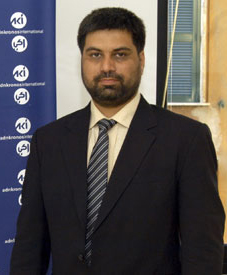 Saleem Shahzad, a 40-year-old father of three, vanished after leaving home in Islamabad to appear on a television talk show, two days after writing an article about links between rogue elements of the navy and al Qaeda.
Shahzad carved out a career writing about the plethora of militant networks operating in Pakistan, and warned human rights campaigners before his disappearance that he had been threatened by the Inter-Services Intelligence.
US Secretary of State Hillary Clinton condemned his murder and said his “reporting on terrorism and intelligence issues in Pakistan brought to light the troubles extremism poses to Pakistan’s stability”.
Shahzad’s body was found Tuesday, about 150 kilometres southeast of Islamabad. Police said it bore marks of torture.
“The cause of death is torture and there are several signs of torture on his body and face,” said Ashok Kumar, one of the doctors who carried out a post-mortem at Islamabad’s Pakistan Institute of Medical Science.
Another doctor told AFP that Shahzad’s lungs and liver had been damaged, that the body was swollen and bore more than 15 signs of having been beaten.
Wasim Fawad, a brother of Shahzad, told AFP that the family was in shock. His funeral was to take place in his home town of Karachi later Wednesday, after the body was flown from Islamabad.
“The post-mortem was being conducted on our request and we will also lodge a case with police. We want an investigation in this killing,” he said.
“My brother was killed for writing the truth. He paid a huge price, he sacrificed his life but always spoke the truth.”
Interior Minister Rehman Malik confirmed that a police investigation had been ordered and promised a reward of 2.5 million rupees.
“Anyone giving us information, evidence or clue about the murder will be given a reward of 2.5 million rupees,” he told reporters.
But police officials in Islamabad and where the body was found each told AFP that the investigation was the responsibility of the other.
“Previous enquiries into the murders of journalists have not been made public and it is not clear if the fate of this enquiry would be any different,” the Pakistan Press Foundation said in a statement.
Reporters Without Borders says 16 journalists have now been killed since the start of 2010 in Pakistan, which it ranks 151st out of 178 countries in its press freedom index.
Shahzad worked for Italian news agency Adnkronos (AKI) and Asia Times Online, a news site registered in Hong Kong. After he vanished on Sunday, AKI said they feared he had been kidnapped.
In 2006, he was kidnapped by the Taliban in southern Afghanistan, accused of being a spy. He was set free after seven days.
Ali Dayan Hasan, senior South Asia researcher at Human Rights Watch, said Shahzad had complained about being threatened by the ISI and said his killing bore the hallmarks of the security services.
Last Friday, Shahzad published an investigative report in Asia Times Online that last week’s attack on a naval air base was carried out to avenge the arrest of naval officials arrested on suspicion of al Qaeda links.
The naval base attack began on May 22 and took 17 hours to repel. Officials said six militants destroyed two US-made surveillance aircraft and killed 10 security personnel in the standoff.
Prominent Pakistani investigative journalist Umar Cheema, who was abducted and tortured last year, said he believed that whoever picked up Shahzad had not meant to kill but to torture him to send a strong message to other journalists.
“It is really a very unfortunate incident. It breaks the myth that journalists in Pakistan, both local as well as foreign, are tolerated and work in a safe environment,” Cheema told AFP.
|

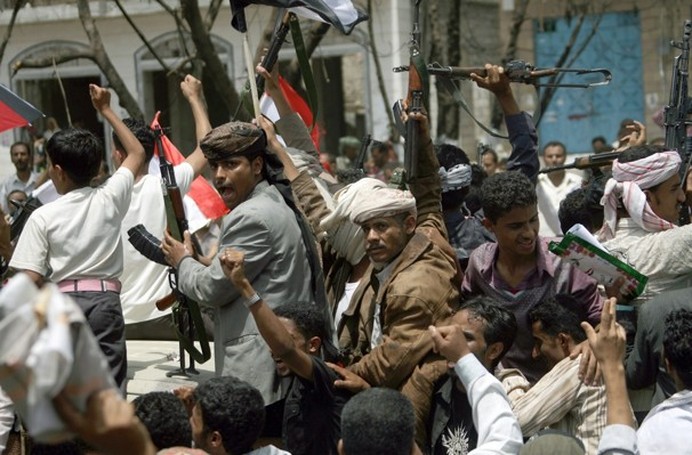




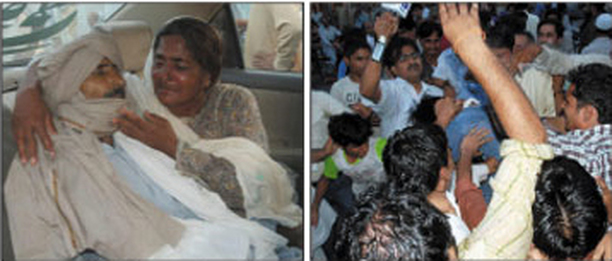



 RSS Feed
RSS Feed